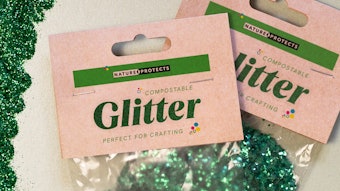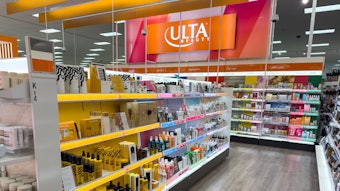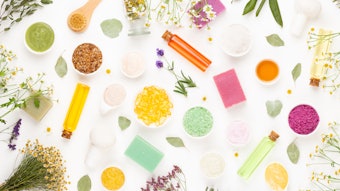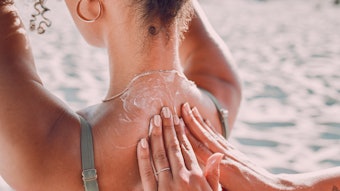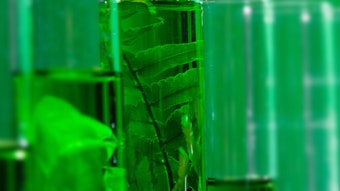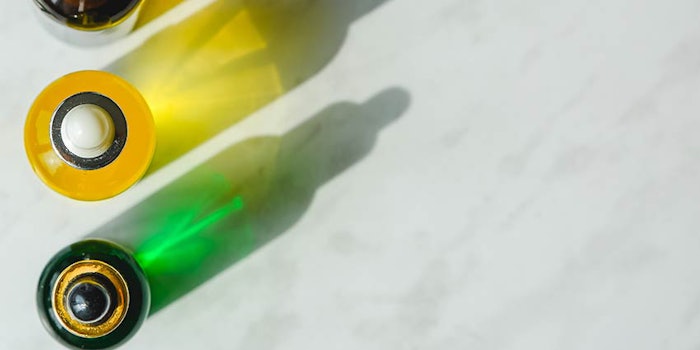
The author of this story is a West Coast-based beauty professional with extensive experience in manufacturing and product development. -Editor
Recently, everyone in the skin care and cosmetics business has been learning about cannabidiol (CBD), the non-intoxicating cannabinoid extracted from hemp. While it may be the next hero product, today’s use of CBD is a bit like the Wild West—with questions flying and claims made.
There’s a growing sense of how to apply the ingredient in our industry, but that doesn’t mean we don’t need to proceed with caution. Extreme caution. We need to know more about this hyped (or over-hyped?) ingredient, as well as the related legalities, regulations, efficacy data, dosage and provenance.
Does CBD Work & is it Safe?
Let’s start with the research. Unfortunately there isn’t much efficacy data on CBD, according to Dr. Jeff Chen, executive director of the UCLA Cannabis Research Initiative, one of the few university programs worldwide dedicated to the study of CBD.
“We don’t know enough,” says Chen. “There aren’t any definitive studies yet, but there’s a slew in the pipeline.”
While Chen is cautious about whether or not CBD applied to skin will do harm, he does say topical application is probably less problematic than ingesting.
“The amount of CBD is low, and because it’s going on the skin, it doesn’t enter the blood stream, as it will with an edible,” says Chen. But proceed with caution, he warns: “We just don’t know yet.”
Health, Not High
We spoke with the founders of Prima and Saint Jane, two privately held beauty and wellness businesses, about how they’re navigating the constantly shifting landscape.
Prima was co-founded in 2019 by Christopher Gavigan, one of the original founders at The Honest Company, along with Laurel Angelica Myers, another Honest Company brand and product veteran, and cannabis activist and Harvard MBA, Jessica Assaf.
All three are committed to producing clean, safe and highly effective products using CBD. As Gavigan says, “This is about healthy, not getting high.”
Prima is concentrating on self-care with its line of skin topicals, facial beauty oils and The Daily, an ingestible hemp supplement, as well as botanical elixirs. The line is sold direct to consumers and specific specialty boutiques in the wellness and beauty market.
“I thought, 'If it does one-tenth of what they claim, it is the next big thing for beauty and wellness.'"
For luxury products, like Prima, the right distribution is key since these businesses must abide by government regulations for social media advertising and marketing.
Casey Georgeson founded Saint Jane, a line currently offering a luxury face serum, a collection of lip glosses and a body serum for much the same reasons as the Prima founders. (The line is available at Sephora.com, Neiman Marcus and Space NK, among others.)
Having worked in the cosmetic and wine businesses developing and marketing new brands, Georgeson was fascinated by CBD: “I thought, 'If it does one-tenth of what they claim, it is the next big thing for beauty and wellness.' And I was personally aware of toxins in the beauty space. In contrast, CBD is a potent plant-based ingredient.”
When her third daughter was born seriously underweight, Georgeson tried in vain to figure out why. She came to believe it might have had to do with her handling of toxic materials in unventilated rooms where she worked with cosmetics.
“We’ll never know,” says the mother of three, “but I’m not taking any chances with Saint Jane’s formulations, which are 100% clean. That’s non-negotiable for me.”
Georgeson made her good intentions apparent in naming the brand. She explains that the name has a double meaning: “Saint Jane references the innocent side of the cannabis plant (you don’t get high), while marijuana, or Mary Jane, includes THC, which creates a high.”
She adds that the actual St. Jane lived in the 1500s. She was a healer of people, especially women, who were uncared for and rejected by society.
“She’s a good namesake and example for us,” says Georgeson.
Secrecy & Sourcing
Both businesses are positioned as “health and wellness” in addition to beauty and are equally serious about the most important elements of CBD products: ingredients and formulations. Georgeson and the trio at Prima quickly learned that the plant from which CBD is extracted sucks toxins (bioaccumulations) from the soil in which it’s planted. That means that a farm’s soil quality is vitally important.
“We are using a blend of emerging bio-chemical technologies and adopting established nutraceautical methodology.”
“It is a little like terroir in wine,” says Georgeson. “The soil quality is important to the growing of grapes and it’s equally important in growing cannabis.”
Neither company will specifically say which farmers they deal with, though Prima’s hemp is organically sun-grown in northern Oregon.
“We put this brand together, because we believe in the power of CBD as a wellness ingredient and the good our products can do..."
Saint Jane’s ingredients, including the full-spectrum CBD used in its formulations, are all sourced in the United States. Just as heritage cosmetic businesses won’t say whom their chemists and formulators are, neither will the CBD-based companies.
“Our innovative formulations are all proprietary,” says Gavigan. “We are using a blend of emerging bio-chemical technologies and adopting established nutraceautical methodology.” Prima’s supplement is a vegan soft gel, rather than liquid tincture, which is common for CBD products.
It’s a more effective way to deliver the complete value of the cannabinoid molecules and other important plant actives,” according to the Prima founders.
CBD Gold Rush
Despite the uncertainty and confusion in the CBD space, Prima has raised more than $3 million in investment capitol seed money. Saint Jane is self-financed.
“We put this brand together, because we believe in the power of CBD as a wellness ingredient and the good our products can do,” says Georgeson, who worked on brands at Sephora while at Kendo.
“You can swipe our micro-dose lip gloss on and get a tiny bit of a boost from CBD,” says the Saint Jane founder. “And you know it’s the very best, cleanest CBD we can find.”
“Social media advertising is tough for those just entering the market..."
An emphasis on clean, safe CBD products reflects the companies’ good intentions and keeps the bottom line healthy. Sales for both have been strong, though they don’t reveal exact numbers.
Saint Jane debuted in January 2019 and reports robust monthly growth and Prima has triple-digit month-over-month growth since it opened in June 2019.
An Educational Mission
Working for the good goes even further at Prima, which is registered as a public benefit corporation, requiring the organization to put some of its profits toward a charitable benefit.
Gavigan, author of, “Healthy Child Healthy World,” sees Prima’s website as a platform for education: “We’ve spent years learning about cannabis. We want to share information with the customer and the public. You don’t have to buy to learn from us.”
Limitations to Growth
While Prima and Saint Jane are just two of the companies that have proven themselves in a market predicted to soon reach $20 billion, they and others in the space face daunting hurdles.
Historically, marketing of cannabis products has been problematic because of strict restrictions on content in social media. Recently, however, these platforms have loosened up. Companies are now allowed to post their products on Facebook and Instagram, but only if they are hemp-based and if CBD appears on the label. Topical products are allowed, but ingestibles are strictly forbidden.
“Social media advertising is tough for those just entering the market,” says Madison Fiore, director of growth at Hawke Media. “If you don't have a relationship with Facebook then it’s doubly difficult. It’s a very competitive business and you need every bit of exposure you can muster.”
Meanwhile, banks continue to be wary of the industry, so their service charges can be high. It’s one among issues in this business that must be dealt within the confines of regulations. They may change, but regulations are regulations.
The potential for CBD in skin care and beauty is obvious. We’re just not there yet.
